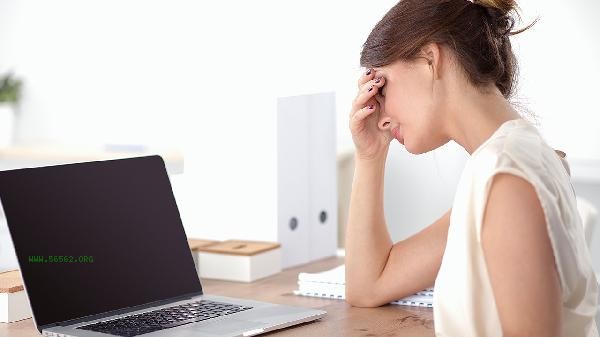Menopausal women's insomnia at night can be improved by adjusting lifestyle habits, psychological counseling, traditional Chinese medicine regulation, hormone replacement therapy, sedatives and sleeping pills, and other methods. Insomnia is usually caused by fluctuations in hormone levels, autonomic nervous system disorders, psychological stress, environmental factors, chronic diseases, and other reasons.

1. Adjusting lifestyle habits
Maintaining a regular sleep schedule and fixed bedtime and wake-up times can help establish a biological clock. Avoid drinking caffeinated beverages such as coffee and strong tea before bedtime, and avoid overeating during dinner. The bedroom environment should be kept quiet, dark, and at a suitable temperature, and comfortable bedding should be chosen. Moderate exercise during the day, such as walking, yoga, etc., but avoid vigorous exercise a few hours before bedtime.
2. Psychological counseling
Menopausal women often experience worsening insomnia due to emotional problems such as anxiety and depression. Psychological stress can be relieved through counseling, mindfulness meditation, relaxation training, and other methods. Talking and communicating with family and friends, and participating in social activities can also help improve emotions. If necessary, seek the help of a professional psychologist for cognitive-behavioral therapy.
3. Traditional Chinese Medicine Regulation
Traditional Chinese medicine believes that menopausal insomnia is often related to liver and kidney yin deficiency, as well as heart and spleen deficiency. You can follow the doctor's advice to take prescriptions such as Tianwang Buxin Dan, Suanzaoren Tang, Ganmai Dazao Tang, etc. Single herbs such as sour jujube kernel, cypress kernel, and night cross vine have the effect of calming the mind and aiding sleep. Acupuncture and moxibustion and moxibustion at Shenmen, Sanyinjiao and other acupoints also have certain effects.

4. Hormone replacement therapy
For patients with significantly decreased hormone levels, short-term use of estrogen or a combination of estrogen and progesterone may be considered after evaluation by a doctor. Commonly used drugs include estradiol valerate tablets, conjugated estrogen tablets, etc. Regular monitoring of breast and endometrial conditions is necessary, and attention should be paid to the risk of thrombosis. Not suitable for self medication, must strictly follow medical advice.
5. Sedative sleeping pills
Severe insomnia can be treated with short-term use of drugs such as zopiclone, zolpidem, alprazolam, etc. under the guidance of a doctor. This type of medication requires strict control of dosage and duration of use to avoid dependence. Individuals with depressive symptoms may consider using sedatives such as mirtazapine and trazodone. Close observation of adverse reactions is necessary during medication.

Improving insomnia in menopausal women requires comprehensive conditioning. In addition to the above methods, daily consumption of foods rich in tryptophan such as millet, bananas, and milk can be moderate. Avoid using electronic devices before bedtime and cultivate good sleep habits. Maintain an optimistic attitude and recognize that insomnia is a common phenomenon during menopause, and in most cases, it will gradually improve. If symptoms continue to worsen or are accompanied by other discomforts, timely medical examination should be sought to screen for organic diseases. Regularly undergo gynecological examinations, pay attention to bone density and cardiovascular health, and comprehensively manage menopausal symptoms.




Comments (0)
Leave a Comment
No comments yet
Be the first to share your thoughts!